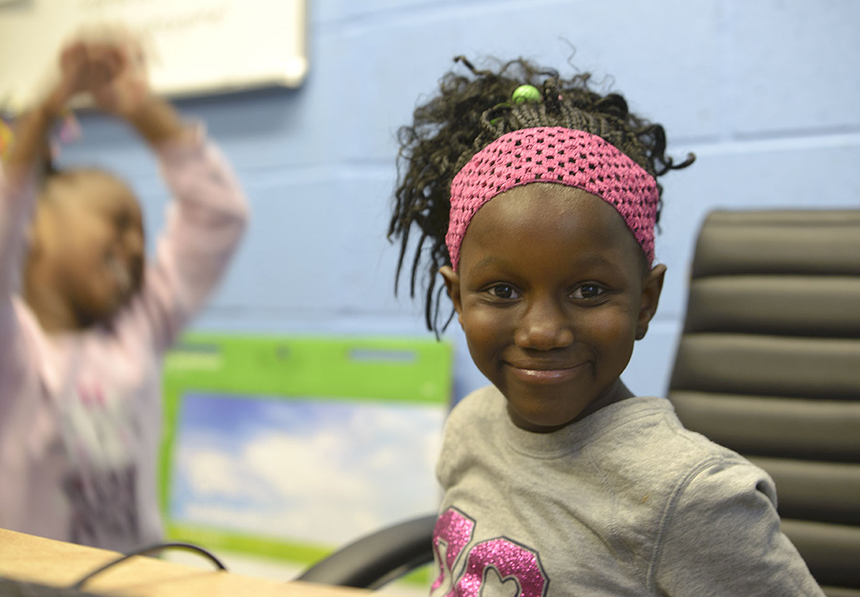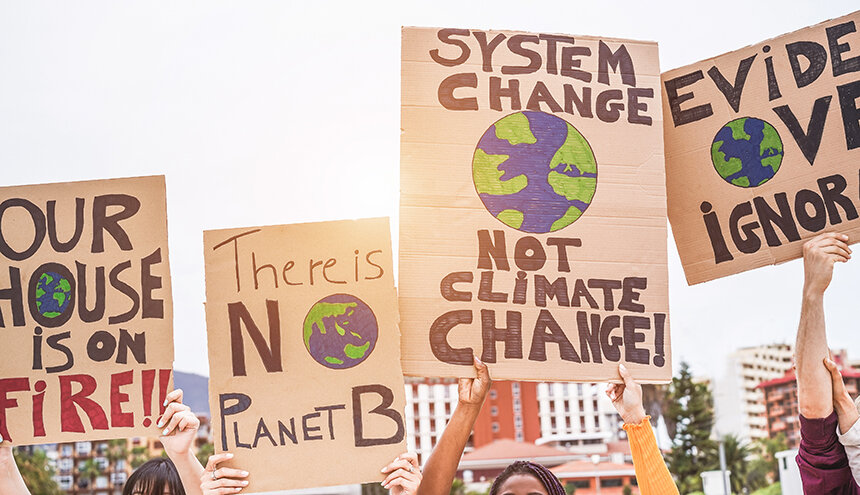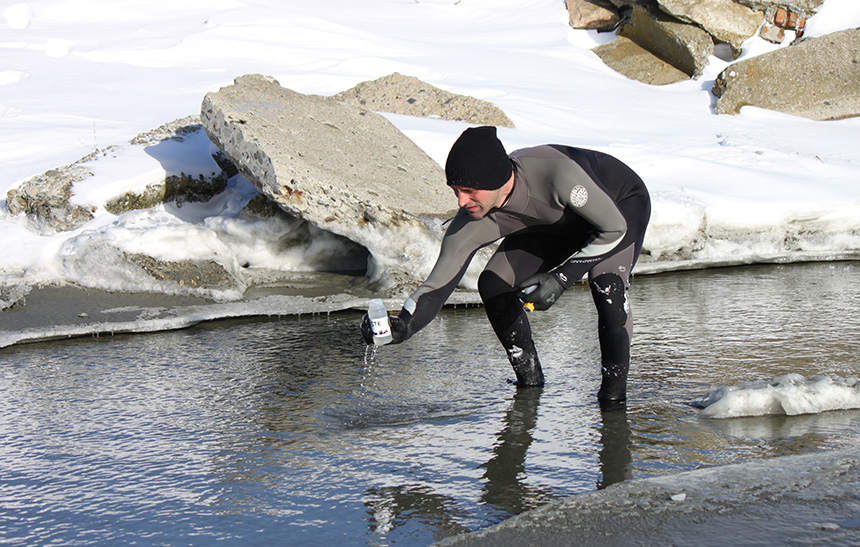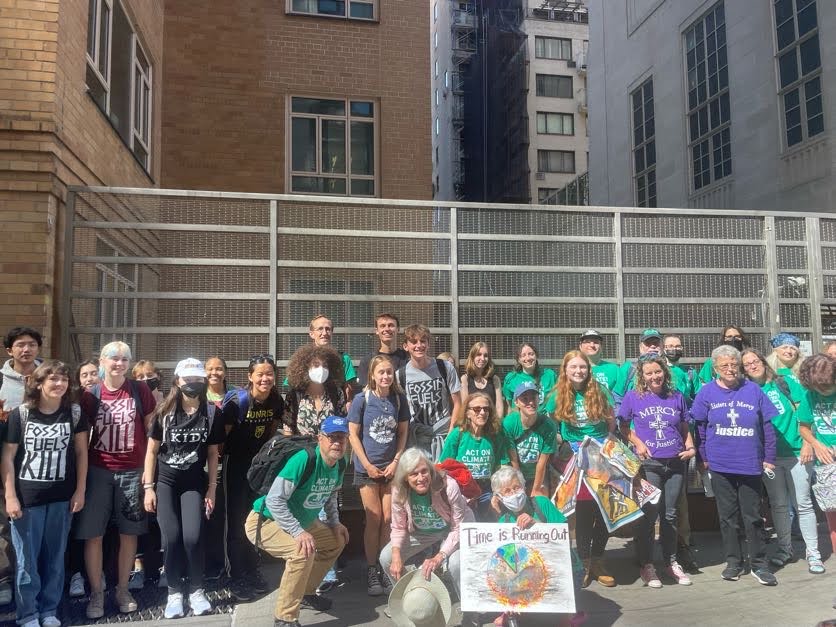Refugees Find a Dreamcatcher in Providence
Gambian national helps those beginning a new life rebuild in a foreign land
February 22, 2016
PROVIDENCE — Omar Bah likes to say he fled the smallest country in Africa to be saved by the smallest state in America. His journey was grueling.
When he landed in Rhode Island, in 2007, he didn’t know a soul. Not surprising, since he didn’t know anyone anywhere in the entire United States. He hadn’t even heard of Providence or Rhode Island until the day before he arrived.
Less than a decade later, Bah is a pillar in the local community, especially when it comes to helping those who share a similar experience.
While many of our presidential candidates and elected “leaders” have spent the past several years vilifying refugees and immigrants as terrorists, drug mules, rapists and murderers, Bah has been helping men, women and children from war-torn countries and the tyrannical oppression of dictators reclaim control of their lives. He understands the trauma and challenges refugees face. He still lives it.
Bah, a journalist in Gambia in his previous life, was forced to flee his native land when he was 26. The country’s dictatorial government didn’t appreciate his brand of political reporting, nor did its officials like the fact Bah wrote about the many problems associated with the dumping of rubbish in an open pit in the center of the country’s capital.
He was arrested by government officials — luckily for him, his arrest was witnessed by human-rights workers and fellow journalists. He was held for a day, much of it spent being tortured. If not for the witnesses, Bah would have “disappeared.”
Bah wrote a book titled “Africa’s Hell on Earth: The Ordeal of an African Journalist.” Published in 2014, the book details his experiences living and working in Africa’s smallest country.
He describes Gambian life as: “If you are hungry, you die hungry. If you are sick, you die sick. If you are hopeless, you die without hope.” There is one TV station, a propaganda arm of the government. The military shoots protesters. He once witnessed a pregnant woman in need of medical attention taken to the hospital in a donkey cart, where she and her newborn died screaming in the waiting room.
The book’s title “Africa’s Hell on Earth” refers to the nickname of the infamous Gambian prisons where many people have disappeared. The prisons are overcrowded, and there is much disease, torture, killing and suffering.
On the back cover of Bah’s 230-page memoir is this line: “Now, with a gun pointed at me, a torch light flashing into my face, I stood up and raised my arms up in surrender.”
After his release from Gambian custody, and after several more run-ins with government officials who feared his intelligence, Bah fled to neighboring Senegal, without his wife, whom he had recently married. His path to freedom led him to Ghana and eventual resettlement in the United States.

Once in Rhode Island, Bah found work, earned undergraduate and graduate degrees, and founded a refugee advocacy and assistance organization. He said he was able to accomplish those things because he was embraced by the community.
“People cared for me and about me,” Bah said. They gave him a home, hope and encouragement. They believed in him.
For three years, during his time in Senegal, Ghana and his beginnings in the United States, Bah was separated from his wife, Teddi Jallow. The couple had only been married for two months before Bah was forced to, literally, run for his life. Jallow was constantly threatened and harassed by Gambia’s corrupt police, until she was able to be reunited here with her husband.
Bah now represents the state of Rhode Island at the Refugee Congress, which is hosted by the United Nations high commissioner for refugees in Washington, D.C. He earned a bachelor’s degree in communication studies with a minor in political science from the University of Rhode Island, and a master’s degree in public administration from Roger Williams University. He also has completed a trauma treatment certification program at Harvard University through the Harvard Program in Refugee Trauma. He has led workshops at Brown University.
Most importantly, he and Jallow are the parents of two sons — Barry who turns 6 next month and 4-year-old Samba.
The nonprofit Refugee Dream Center was established by Bah and his wife to bridge the gap between the services refugees receive from the Dorcas International Institute of Rhode Island and the Diocese of Providence and living on their own in a new country with a different language and culture.
During ecoRI News’ recent Friday afternoon visit, the center’s space on Lockwood Street was buzzing with kids, a group of women was being taught English and several recent refugees were working with a staffer.
“We don’t bring refugees here; we help continue services,” Bah said. “Six months isn’t a long time for refugees to get acclimated to a new culture. There’s a huge gap in services. Every refugee is dealing with trauma — PTSD, depression. In the 1980s the U.S. government used to fund services for three years.”
The center currently is working with about 50 refugees. Its work is largely funded by grants and donations. “People have been generous,” Bah said.
Center staff and volunteers help refugees get referrals and assistance, and they provide health-care education and cultural orientation, mental-health support services, after-school programs, tutoring and mentoring for youth, and English language and job skills development. The center gives refugees the chance to integrate into the larger U.S. society by providing them the means to interact and share their unique cultures and skills.
Basically, Bah and his staff provide society with the opposite of what a Feb. 22 political stunt at the Statehouse was offering: ignorance and fear.
Former Congressman Pete Hoekstra, R-Michigan, a former chairman of the House Intelligence Committee, came to Rhode Island to join Rep. Mike Chippendale, R-Foster, and Charles Jacobs, president of Americans for Peace and Tolerance, to call on Gov. Gina Raimondo to reconsider the welcoming of Syrian refugees. Chippendale, originally advertised to be part of the circus, didn’t show up.
In a press release touting the stunt, Jacobs peddled: “We are a country of immigrants that welcomes people who come to join us and bolster our way of life. We sympathize with people fleeing war. But an influx of Syrian refugees may pose significant dangers to Rhode Islanders, especially to the Jewish community here.
“Throughout the national discussion, few have raised the question of deeply ingrained hatred of the West, especially of Jews, inculcated through Syrian educational intuitions — starting from childhood. Yet studies of Syrian school curricula and culture show that practically every Syrian will have been taught these hatreds.”
Rhode Island welcomes about 200 refugees annually, as it has for decades. Many have come from Syria, Iraq and Rwanda, countries that, like the United States, feature segments of the population known to preach hate.
The Ocean State needs more people like Bah, his wife and the people who help them run the Refugee Dream Center, no matter where they’re from or how they got here.



